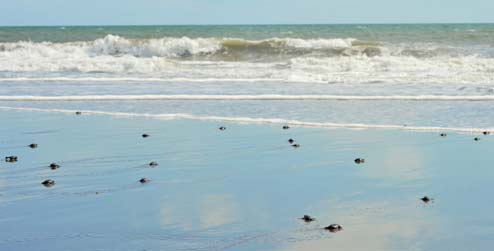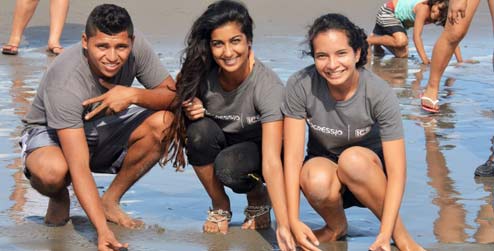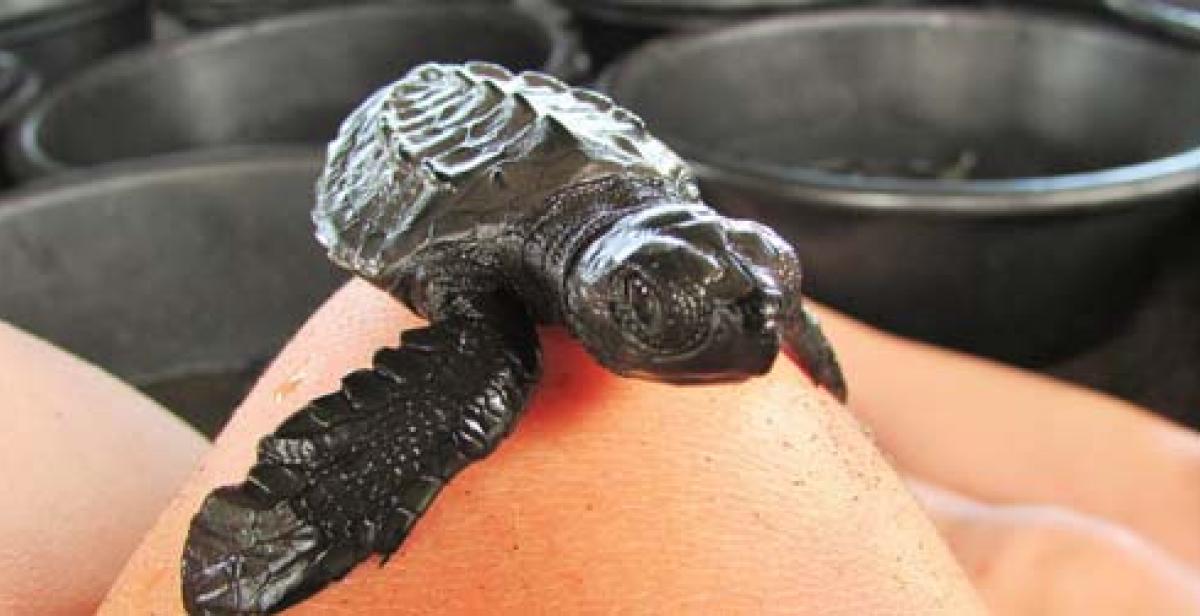In collaboration with our partner organisation El Movimiento Salvadoreño de Mujeres (MSM) our group from Nuevo Gualcho were given the opportunity to participate in a turtle liberation as part of a conservation project. MSM has been involved in the project since February 2009 in an attempt to reduce the number of turtle eggs attacked by wild animals or stolen and sold illegally to be consumed as restaurant delicacies. At a social level, the encouraged participation of local women has promoted the importance of gender equality through their enhanced responsibilities in communal projects. The visit was particularly relevant to our work in Nuevo Gualcho as we were able to witness a fully functioning eco-tourism programme.

The increased biodiversity from the protection and liberation of the turtles also increases ecological interest in the area, with greater conservation research being collected, and the education of local school groups on the importance of marine conservation. The project encourages alternative opportunities for those in the community, not solely for women, but also as a diversion from gang involvement, which is prevalent in the area.
During our trip we found out that under normal circumstances, turtle eggs, when left unprotected, have only a one in one hundred chance of survival. With the help of MSM and Fondo de Iniciativas para las Américas (FIAES), that percentage is raised to a five percent survival rate. The four species conserved in Bahia de Jiquilisco are Olive Ridley turtles, Leatherback turtles, Hawksbill turtles and Green turtles – our trip involved the release of Olive Ridley turtles. The Olive Ridley turtle lays around 105 eggs per year, from June until December, which will hatch after a 45 day incubation period. Once hatched, these baby turtles still face a battle of survival upon reaching the sea: not all will make it to sexual maturity, however those which do are likely to have a lifespan of fifty to sixty years. The conservation of turtles has also helped repopulate fish in the area due to the rebalance of algae levels, which is the Olive Ridley turtle primary source of nutrition. This, in turn, will boost local fishing opportunities.

Carrying the pre-hatched turtles in large buckets down to the water edge, we were fortunate enough to release these amazing creatures back into their natural habitat. With help from students from the local school we all got involved in helping the baby turtles take their first steps towards the ocean. This was an overwhelming experience for everyone in the group: we were able to observe first hand a valuable conservation project in action, and participating in the turtle liberation is a once in a lifetime experience which we will never forget.
Written by ICS volunteers Juan Antonio Chavarria and Amelia Hunt



